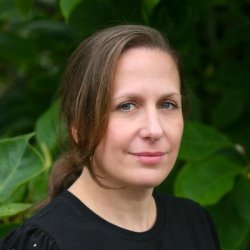Meet the academic: Professor Nophar Geifman
“For people with a love of computer science and a desire to help people, health and biomedical informatics offer excellent career routes. It’s a field that allows individuals to express their creativity and innovative thinking, and when applied to medical research, has real-world impact.”

Nophar Geifman is a Professor of Health and Biomedical Informatics in the School of Health Sciences and is working on a range of impactful research projects which focus primarily on precision medicine, patient stratification, and biomarker discovery. Nophar firmly believes that progress in medical research is often held back by over-simplification of the complexities in disease and care, and that Big Data, AI and machine learning can successfully address these intricacies.
Why did you become a biomedical scientist?
I’m named after a medicinal flower (Nuphar Lutea), so perhaps it’s natural that I’ve developed my career in medical science! Growing up I thought I wanted to be a doctor. In my teens, I volunteered for an ambulance service and later worked as an emergency medical technician. In this time, I learnt a lot about myself and decided a medical degree was not for me, and so I chose to study life sciences. During my undergraduate studies, I was introduced to the idea of furthering medicine from the laboratory and by using data science. These seemed like a more natural route for me.
Where has your career taken you, and what have been the highlights so far?
After being awarded my PhD in Medical Sciences, I moved to the US to continue my training as a postdoctoral researcher at Stanford University, and later at the University of California, San Francisco. Having this opportunity to work at top universities with a group of extraordinary scientists, developing my own independent ideas and research, was a huge step in my career readiness. I loved life in Silicon Valley and the air of excitement and commitment in my workplaces.
How and why did you become an academic?
I always felt my research would have the widest impact if carried out in an academic setting. I enjoy training the next generations of scientists and love the flexibility that academe allows in terms of developing ideas and addressing real-world problems.
What excites you most about your current role?
My new role at Surrey brings many new opportunities for growth, in terms of the teaching and research that myself and my team can deliver, but also in the support that we can provide to other groups across the University. I am excited to embark on new avenues of research and contribute to the various ongoing activities within the University. Mostly, I’d like to help establish health and biomedical informatics as a major strength at Surrey, making it a centre of excellence in this field.
What is your specific area of expertise, and why are you passionate about it?
The thread that runs across much of the research I’ve been involved in, is the use of data-driven unsupervised machine learning approaches. These allow us to gain knowledge from data, letting the data tell the story, without imposing our assumptions and what we think we know about disease. Using these approaches we can visualise data better, identify clinically useful subgroups of patients, or discover links between patient characteristics or biomarkers - all of which have the potential to be highly informative and useful.
Why should people study health and biomedical informatics?
For people with a love of computer science and a desire to help people, health and biomedical informatics offer excellent career routes. It’s a field that allows individuals to express their creativity and innovative thinking, and when applied to medical research, has real-world impact.
What are you looking for in a student?
Enthusiasm for the topic, whether it’s in a taught programme or research. If a student comes in truly driven and excited about the subject, I find they are often successful in their studies.
Do you have any advice for prospective students?
Think carefully about how happy and confident you will be in a world of numbers and graphs. If these are things that speak to you, think about the ways that you would want to use data to progress healthcare for people or animals.
